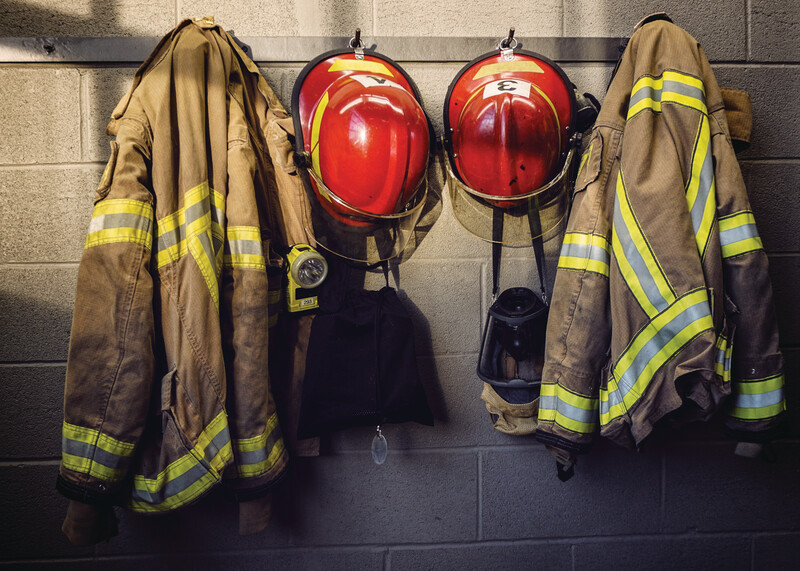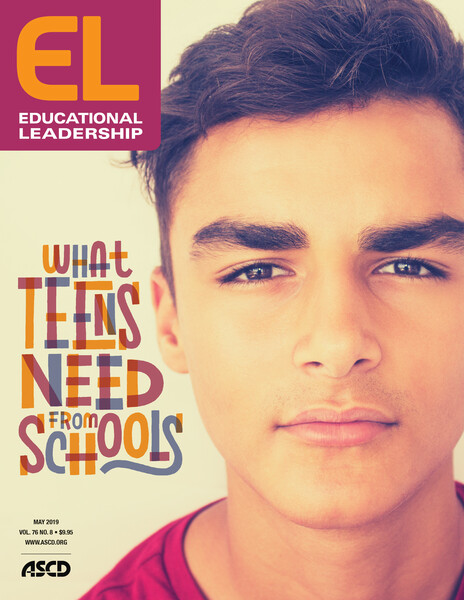The teenage years are a best-of-times/worst-of-times period. While students of this age may seem a different species, they are, of course, homo sapiens. Yet it's not an exaggeration to say that the teen years are unique. As John Medina details in his book Attack of the Teenage Brain! (ASCD, 2018), the average person's brain does operate differently in the teen years than at most other stages of life. Neural connections (dendrites) between regions of the brain increase just before the teen years, and during those years are "pruned" and strengthened like never before to make the brain more efficient. Key brain areas (including areas related to emotions and "reward centers") have heightened activity—so ages 13–19 are in one way "the best of times."
But somewhat scarily for educators, it's the experiences a person has during these years that largely determine how well the brain completes this process of connecting brain components—a process that eventually makes learning and performing in almost any field easier. So it's crucial to consider what kind of experiences, interactions, and guidance teens most need in the environment where they spend most of their days—schools.
The authors in this issue emphasize the importance of keeping teens' developmental needs in mind, of remembering, as psychologist Thomas Armstrong notes, that the teen brain is neuroplastic—in progress. Often the "worst of times" surface for kids this age when adults ignore their developmental needs. Education consultant Cathy Vatterott describes the increase in anxiety she sees in students stressing over academic achievement. Articles by school leadership expert Michael Fullan and colleagues and middle school educators Dena DeJulius and Lisa McLean also surface anxiety and loneliness as a skyrocketing problem U.S. teens face. Teachers, Vatterott finds, generally recognize students' unhealthy focus on perfection, but aren't sure how to alleviate it. She lists seven things adolescents truly need to do in school (like play a game where winning doesn't matter)—things that "let teens be teens." Armstrong recommends emphasizing academics less exclusively and bringing into the curriculum more emotional connections and more risk taking. Seeking risk and sensation is part of being a thriving teen. Armstrong urges schools to honor these desires, arguing the high school curriculum "needs to be more engaging in terms of humor, vitality, joy, and even negative emotions … to bring out those qualities and channel them, so they aren't expressed in dangerous ways outside of school." Similarly, Jeffrey Benson argues that long lists of iron-clad rules ignore adolescents' ability to think for themselves and explore new territory. But here's a challenge: While educators want to prioritize giving teens emotional safety and helping them channel their passions, they're responsible for ensuring students learn certain content—whether it interests teen brains or not. One key to both making sure all teen students master standards and helping them feel their emotional selves and their interests are welcome at school may be simply knowing each teen learner as a complex individual, becoming aware of all aspects of that learner's identity and any life challenges they face. As Chicago Public Schools mentor Horace Hall says, "To reach students academically, [we] must first know where they 'live' socially, culturally, and emotionally." Seeing the multifaceted individual each teenager is may help us get to the best of times by recognizing the potential embedded in the teen years, when emotions are strong and brains shaped. The March for Our Lives organized by Marjory Stoneman Douglas High School students and other movements catalyzed by young people's energy should remind us that teaching students of this age can mean channeling lots of power. As Joshua Lombardi, one of eight teens who share their perspectives in our Teen Voices feature puts it, "You know you have a good teacher when they make you learn while respecting your individuality … when they encourage you to be the better and brighter future of the world." Guiding Questions
➛ Does your school feed into the culture of high-achieving, overwhelmed, "rudderless box checkers" that Vatterott describes? In what ways?
➛ What changes to existing school practices, like homework, could help lift the burden off your student population?
➛ What opportunities do teens have at your school to voice their opinions for change?
➛ How do you think your district could be better at including students in certain decisions about the school?
➛ In the article, the district focused on student well-being and mental health as a focus area. What is one topic or challenge in your school students can help solve?
➛ Do teenagers deserve more rights and freedoms in school, or do they do better with regulations?
➛ Can you think of an instance in your school where a "rule" could've been a "guideline" instead?
➛ Have you ever bent the rules for a student? Do you think that was OK? Did it affect your relationship with your colleagues?
➛ Do you know which students in your classes come from immigrant backgrounds? Have you talked with them or asked them about their home cultures? How might you do so—or in subtle ways affirm this part of their identity?
➛ Do you ever let your English language learner students use "translanguaging" in their academic work? How might you do so?
➛ If you know a few immigrant students fairly well, ask them how, in general, students from immigrant backgrounds are treated in your school. Have they ever experienced or heard about discrimination or teasing?
➛ Can you say, unequivocally, that every black student in your school has a trustworthy adult in whom they can confide? If not, how could you come together as a staff to ensure this happens?
➛ What actions can you take to better recognize the individual assets and strengths of the black adolescents you serve?
"Going Deeper" by Michael Fullan, Mag Gardner, and Max Drummy
➛ Do you agree with the authors that high schools aren't doing enough to help students engage with meaningful challenges? If so, why do you think education has developed in this way?
➛ Given the authors' descriptions, what might deeper learning look like in your school or classroom?
➛ According to the authors, "The most important change required in education is cultural." What does this mean to you?







